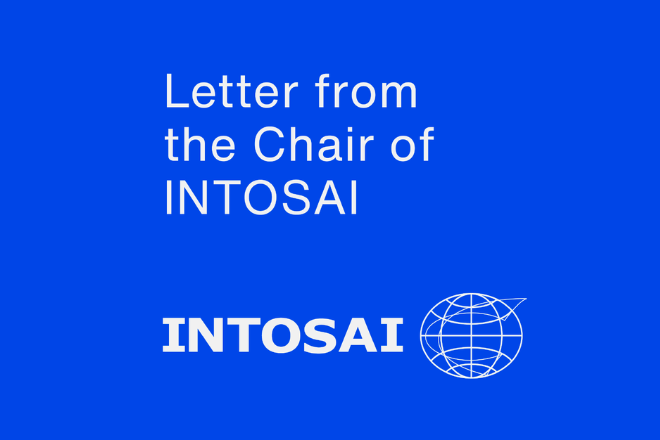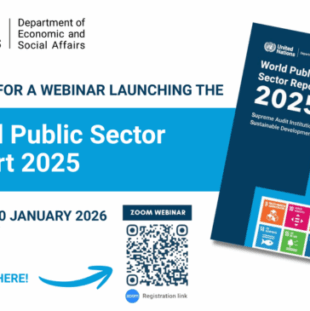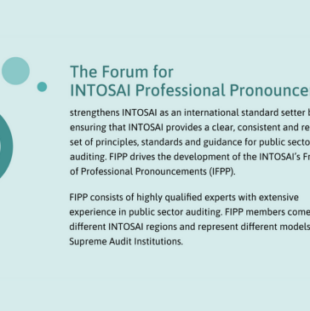Letter from the Chair of INTOSAI

The chair of the International Organization of Supreme Audit Institutions (INTOSAI), Minister Bruno Dantas, in his first open letter, reinforces the relevant role of these organizations on budget credibility in favor of the implementation of the SDGs
Governments around the world have been required to provide a growing set of public services, as outlined in the Sustainable Development Goals (SDGs) established under the 2030 Agenda launched by the United Nations.
Social demands are becoming increasingly complex and articulated, requiring national governments to provide goods and services faster and more effectively. On the other hand, countries simultaneously face challenges in raising and managing resources to meet these demands, related to a notable debt burden and downward trends in economic growth and the fertility rate of their populations, implying an obligation for policymakers to closely monitor their governments’ financial capacity to meet these commitments.
Supreme audit institutions have a crucial role in promoting the implementation of the SDGs, verifying the legality and accuracy of public accounts and ensuring budget credibility, which directly contributes to governments fulfilling their sustainable development promises.
In this context, last July saw the launch of the document entitled “Strengthening Budget Credibility through External Audits: A Handbook for Auditors”, a manual that offers technical guidance and practical examples on the oversight of public finances through external auditing.
Divided into seven chapters, the document explores and details auditing techniques, case analyses, resource models and best practices aimed at government auditors who oversee public financial management systems at different levels. In addition, the manual provides a well-structured conceptual perspective on budget credibility, while providing guidelines on the expected role of SAIs in promoting integrity, both in the government budget formulation process and in financial management systems.
The work was the result of an exceptional collaborative effort coordinated by the International Budget Partnership (IBP) and the Public Institutions and Digital Government Division of the United Nations Department of Economic and Social Affairs (DPIDG/UNDESA) and developed over the course of a two-year collaboration with auditors from the supreme audit institutions of Argentina, Brazil, Georgia, Indonesia, Morocco, the Philippines, Uganda and Zambia. The manual was also developed with the participation of other SAIs and contributions from civil society, international organizations and public finance experts.
Intosai, as the entity responsible for supporting the SAIs on their missions, and as the locus to build and promote the exchange of knowledge and capabilities for the cooperation among these institutions, has also actively contributed to the development of this project by promoting webinars, research and technical meetings. At the 24th Congress of Supreme Audit Institutions (INCOSAI), held last year in Rio de Janeiro, Brazil, the discussion about the manual was included in the official program of the event, in a panel held by UNDESA and IBP.
As a member of the Federal Court of Accounts, Brazil’s supreme audit institution, I had the opportunity to carry out audits and take part in decisions that demonstrate the positive impact that SAIs can have on promoting budget legality and the accuracy of public accounts.
In this sense, in recent years, the Court has consistently provided critical insights into budget credibility in Brazil and played a crucial role in ensuring adherence to national fiscal rules, offering recommendations covering areas such as budget planning, fiscal transparency, decentralized allocation of resources to local governments, budget monitoring and policy evaluation. These actions aim to promote more responsible and effective management of public resources, strengthening the country’s financial governance.
As described in the Handbook, budget credibility is evidenced in the reliability and performance of budget instruments. In this context, SAIs play a key role in analyzing budget deviations and other risks that could compromise the credibility of the government budget. Reliable budgets are extremely important for preserving the integrity of public resources, fostering trust in institutions and mitigating the risks associated with corruption.
The timely launch of this manual reminds us of the fundamental contribution that supreme audit institutions can make to promoting the Sustainable Development Goals, and INTOSAI has a vital role to play in disseminating best practices in government auditing.
I would like to express my deepest gratitude to all those involved in this noble project and invite all supreme audit institutions to effectively implement the manual. Together, we can make our planning and budgeting systems more transparent, reliable and aligned with the goals of sustainable development.





